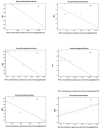Effects of Pantoprazole on Systemic and Gastric Pro- and Anti-inflammatory Cytokines in Critically Ill Patients
- PMID: 24250536
- PMCID: PMC3813167
Effects of Pantoprazole on Systemic and Gastric Pro- and Anti-inflammatory Cytokines in Critically Ill Patients
Abstract
Stress-related mucosal damage (SRMD) is a significant cause of morbidity and mortality in critically ill patients due to the gastrointestinal blood loss. Prophylaxis of SRMD with proton pump inhibitors or histamine-2 blockers has gained widespread use in intensive care units. Both demonstrated to be effective in reducing clinically significant bleedings, while PPIs has shown to exert some anti inflammatory effects including the inhibition of producing pro-inflammatory cytokines. As cytokines have role in developing SRMD, the aim of this study was to evaluate the effect of PPIs on the inhibition of cytokine release following the critical illness. A total of 27 critically ill patients with risk factors of developing stress ulcer and intragastric pH < 3.0 enrolled to this Randomized clinical trial study. Patients were randomly assigned in three treatment groups; group one received 40 mg of intravenous pantoprazole every 12 h for 48 h (four doses), group two received 80 mg of intravenous pantoprazole every 24 h continuous infusion for 48 h and the third group received 150 mg of ranitidine intravenously as 24 h continuous infusion for 48 h. Plasma and gastric juice samples were obtained at 0th, 12th, 24th and 48th h for the measurement of EGF, IL-1β, IL-6, IL-10 and TNF-α. Pantoprazole infusion have decreased the plasma IL-1β concentrations (p = 0.041). No other significant differences in concentrations of EGF, IL-6, IL-10 and TNF-α were detected. There were reverse correlations between the intragastric pH with gastric juice IL-1β and TNF-α concentrations and a direct correlation between the intragastric pH and gastric juice EGF in pantoprazole groups. Our data suggest that pantoprazole may have some anti-inflammatory effects on patients. However, the exact impact of this effect on patients should be assessed by further studies.
Keywords: Critically ill patients; Cytokines; Pantoprazole; Stress-related mucosal damage prophylaxis.
Figures
References
-
- Zuckerman GR, Shuman R. Therapeutic goals and treatment options for prevention of stress ulcer syndrome. Am. J. Med. 1987;83:29–35. - PubMed
-
- Schuster DP, Rowley H, Feinstein S, McGue MK, Zuckerman GR. Prospective evaluation of the risk of upper gastrointestinal bleeding after admission to a medical intensive care unit. Am. J. Med. 1984;76:623–30. - PubMed
-
- Sesler JM. Stress-related mucosal disease in the intensive care unit: an update on prophylaxis. AACN adv. Crit. Care. 2007;18 - PubMed
-
- Martindale RG. Contemporary strategies for the prevention of stress-related mucosal bleeding. Am. J. Health-System Pharm. 2005;62:S11. - PubMed
-
- Mutlu GM, Mutlu EA, Factor P. GI Complications in patients receiving mechanical ventilation. Chest. 2001;119:1222. - PubMed
LinkOut - more resources
Full Text Sources
Research Materials



